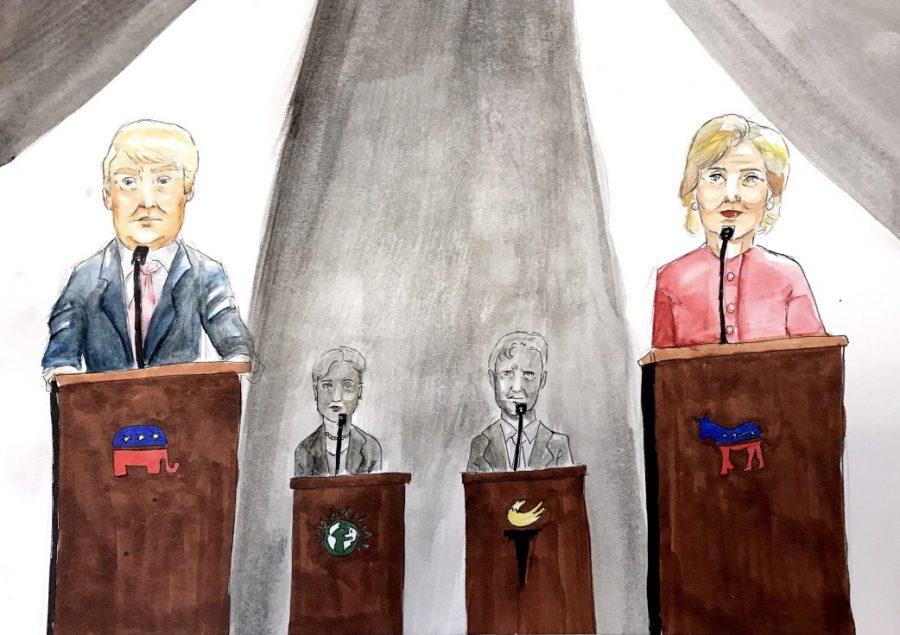Third party candidates are often left in the shadows of the primary party candidates.
Three Is a Crowd in a Two-Party System
Nov 16, 2016
The Prohibition Party, Pirate Party, Citizen’s Party and America’s Party are just four of the dozens of “third” parties that are present yet underrepresented in America. Ask yourself: have you ever heard of the Modern Whig Party? You most likely have not, considering it has a Wikipedia page shorter than that of Transylvania University in Lexington, Kentucky. The reason? As a member of the media, it pains me to say that the reason behind the under representation of third parties is, in fact, the media.
According to the Media Research Center, Evan McMullen, Gary Johnson and Jill Stein have received a combined total of 46 seconds of news coverage from ABC, NBC, and CBS Evening News from Jan. 1 to Aug. 31, as opposed to 2,793 minutes of coverage of Hillary Clinton and Donald Trump.
“Third parties in this election were a waste of a vote. Even though it sounds harsh the real race was between Clinton and Trump and the third parties didn’t have a chance,” senior Iris Cordero said.
To highlight the underrepresentation even further, CNN once covered Donald Trump’s eating habits for a week (he ate fried chicken every day for a week) and spent little time covering the multiple rallies that were held by Johnson and Stein from the Libertarian and Green parties, respectively.
Something that irks many people is that there are many third-party affiliations that they agree with more than the moderately liberal Democratic and conservative Republican parties. If you are a centrist, which means that you agree with parts of both the Democratic and Republican platforms, the Libertarian party might be for you. A very liberal person might be a match to the Constitution Party, while someone who is far left might support the Communist Party USA, or the Peace and Freedom Party for someone less extreme left.
There is evidence that third-party candidates are ill-equipped to hold office (see Johnson’s statement on Aleppo). However, some may prefer a candidate is unaware of Aleppo’s city status over a candidate who gained most of his attention from threatening to build a border wall and to ban all Muslims, as well as made multiple disparaging remarks about women and people with disabilities.
To conclude, there are many third parties that people may feel coincide with their beliefs more closely than the Democratic or Republican parties that are possibly being drowned out by the media. A vote for a third party does not need to be a wasted vote if one actually votes for the candidate he most closely agrees with instead of the large party’s candidate.
